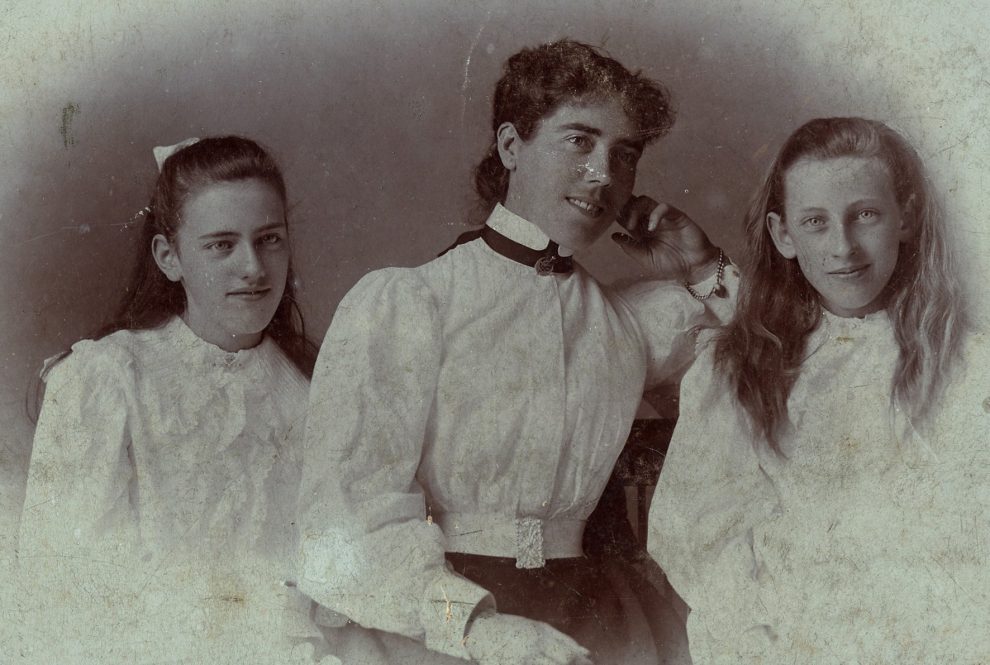Gregynog Hall, one of Wales’ leading country and former home of art collectors and music lovers Gwendoline and Margaret Davies, will be hosting contemporary folk musician Alison Cotton in March.
Alison will be performing music from her acclaimed catalogue including Engelchen, her musical tribute to two extraordinary spinster sisters, Ida and Louise Cook. The tribute is particularly fitting as it will be performed in the home of the remarkable Davies sisters, also spinsters, on Saturday, March 23.
Alison Cotton will be supported by Elizabeth Still (Haress) and will perform in Gregynog’s glorious Music Room which hosted the Davies sisters’ chamber music performances by composers including Elgar, Britten and Vaughan Williams.
Early bird tickets booked by the end of February cost £12. Tickets are available from Gregynog at Tregynon, near Newtown or online athttps://www.wegottickets.com/event/605525 .
Visitors can also choose to stay in one of Gregynog’s historic bedrooms in one of Wales’ finest stately homes, with bed and breakfast available. To book, call 01686 650224 or email [email protected] .
Louise and Ida were a generation younger than the Davies sisters and brought up in far simpler circumstances. It might seem that their lives were a world away from that of the privileged and wealthy Gwendoline and Margaret. Louise and Ida had to earn their living, while the Davies sisters lived on inherited wealth.
But the Davies sisters and the Cooks shared two fundamental characteristics: a passionate love of music and an inability to turn their backs on suffering people.
Gwendoline and Margaret were both musical and, from an early age, escorted by their governess, had toured the concert halls and opera houses of Europe, developing a love of every sort of music from Handel to Wagner.
Louise and Ida, hardly out of their teens, were saving every penny of their wages – and Ida’s later income from the romantic novels she wrote – to attend operas and recitals in London and in many of the capitals of Europe.
They became ardent fans of favourite sopranos and conductors. They saved for two years to sail third class to New York to hear Amelita Galli-Curci, the leading soprano of the age, sing in Verdi’s La Traviata at the Metropolitan Opera.
The musical Europe of the 1890s and early 1900s, as experienced by Gwen and Margaret, was very different from the musical Europe of the 1920s and 1930s experienced by Louise and Ida.
The sunny, prosperous years of the Edwardian era were very different from the depressed years which followed the end of the First World War. Britain was hit by unexampled levels of unemployment and distress, while Germany’s similar economic troubles led to the rise of Nazism, the seizure of power by Hitler and the ominous scapegoating of the Jewish population.
Gwendoline and Magaret had not turned their backs on the Belgian refugees who flooded across the English Channel into Britain when Germany invaded their neutral country in 1914. Similarly, Louise and Ida certainly did not turn their backs on the beleaguered Jews.
The Davies sisters weren’t so intrepid as Ida and Louise – they did not go to Belgium themselves to rescue refugees, but funded their journeys and supported the rescued families on their arrival in Britain, often for years.
In the 1930s, Ida and Louise put their lives at risk by travelling to and from Germany to attend concerts, but returning home laden with jewellery and possessions of Jewish families who might – but not always – be allowed to leave the country, but not with any of their valuables.
As The New Yorker writes: “The jewels and furs they sneaked out were not for themselves but for refugees from Nazism, mostly Jewish but some political, whom they were working to get to safety—finding people in England who would vouch for them and take them in, assembling their papers, and eventually purchasing a flat in London where people in transit could comfortably stay.
“To help support themselves in their new lives, refugees could sell the glamorous belongings that the Cook sisters managed to spirit away. For their work on behalf of persecuted European Jews, Ida and Louise would eventually be honoured as Righteous Among the Nations by Yad Vashem, the World Holocaust Remembrance Centre.”
Gwendoline and Margaret’s open-handed philanthropy in the 1920s and ‘30s did not put their lives at risk as the heroic travels of the Cook sisters did. What over-rides the differences in their upbringing, education and financial circumstances is their mutual concern for people in jeopardy, whether Belgian refugees fleeing the German occupation of their country in 1914, or the Jews of Germany as Hitler rose to power.
It is certain that the Davies sisters would have welcomed the tribute to be paid to Ida and Louise Cook by the performance ofEngelchen at Gregynog.



















